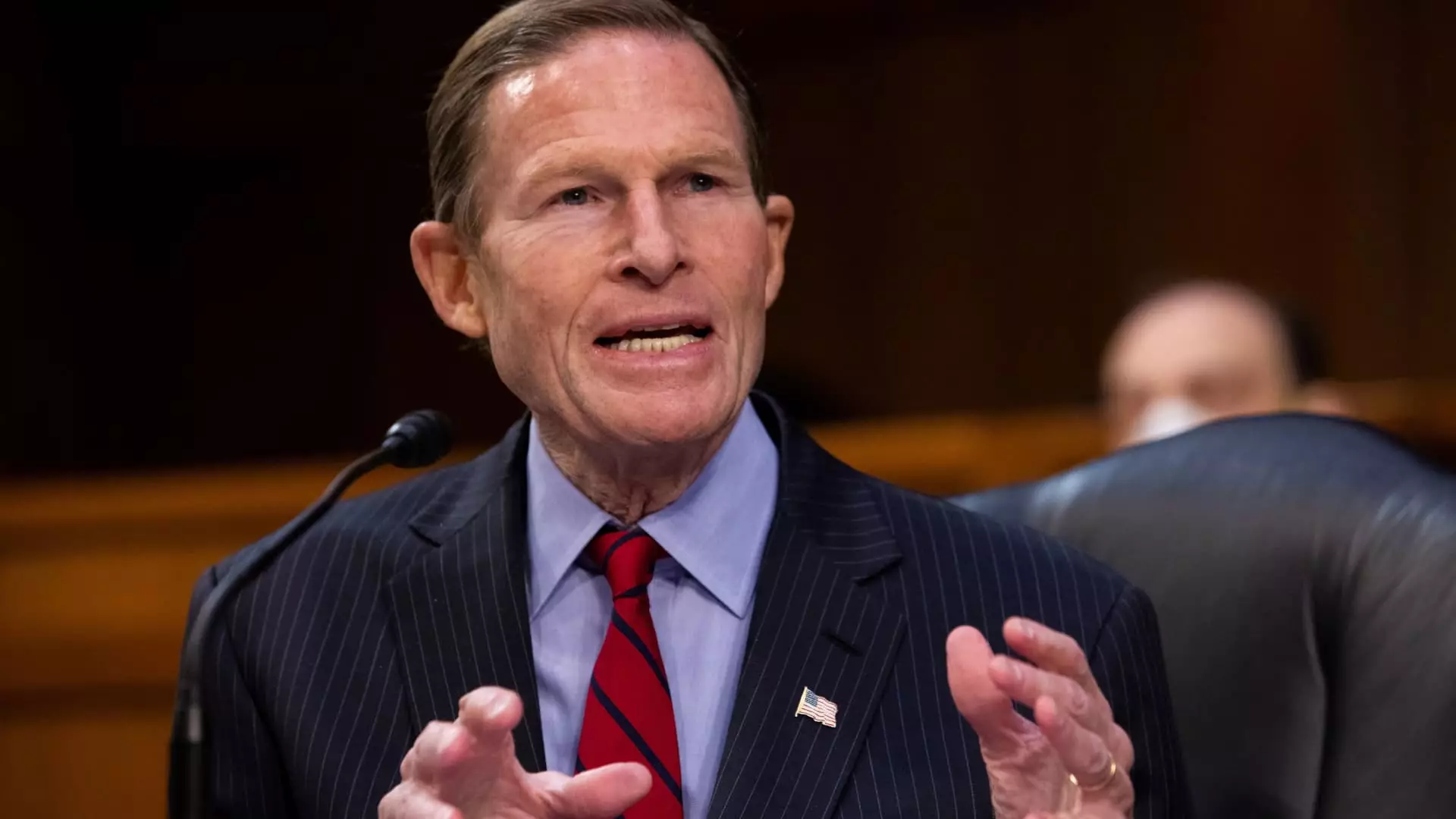In a move that has raised more eyebrows than it should, Visa’s recent partnership with Elon Musk’s social media platform, X, has prompted a wave of scrutiny from lawmakers. Senator Richard Blumenthal’s inquiry into the details of this collaboration is not merely an example of meddlesome politics; it is a vital step to uncover potential conflicts of interest and lapses in ethical governance. The situation presents a rare opportunity for bipartisanship against a backdrop of corporate ambition, challenge, and ethical decay.
Senator Blumenthal’s concerns amplify an unsettling reality: Musk, who has gained notoriety for his controversial management style and his high-profile downsizing of the Consumer Financial Protection Bureau (CFPB), now finds himself in a position of unprecedented influence over financial transactions on X. This raises pivotal questions about the governance of consumer financial protections at a time when digital payment solutions are surging in popularity. Should consumers really trust a platform riddled with “bots, scams, and hate speech” to safeguard their transactions?
Musk’s Shadow Over Financial Integrity
Elon Musk’s record of dismissing established regulatory frameworks casts doubt on how he will approach his venture into the financial sector with X Money. Senator Blumenthal’s allegations that operatives from Musk’s Department of Government Efficiency accessed sensitive CFPB data to potentially undermine its authority signal a dangerous trend in corporate governance. This scenario isn’t merely an academic concern; it represents a situation where consumer safeguards could be undermined in favor of profit. The ethics of such a decision shouldn’t just be questioned; they should be vigorously scrutinized, especially when it involves the financial well-being of millions.
The juxtaposition of a social media platform with a history of problematic content moderation now venturing into the financial sector paints a grim picture. Will the same standards that resulted in rampant misinformation and virulent scams be applied regarding users’ financial safety? The odds seem low, and this skepticism echoes the sentiments of many who feel ill at ease regarding this corporate marriage.
The Regulatory Avalanche: A Call for Transparency
Senator Blumenthal’s pressing request for transparency concerning Visa’s plans and realistic business models serves as a litmus test for corporate accountability. The letter demands not only an overview of the arrangement but also details regarding compliance with anti-money laundering regulations—a request that, under normal circumstances, should be standard protocol. However, in this case, transparency is not just prudent; it is essential. The stakes are high: financial crime such as fraud and money laundering could fester in a poorly governed partnership, wreaking havoc on everyday consumers.
Visa’s reputation as the largest payment processor comes with significant responsibility. It defies comprehension that it would enter into a relationship with a platform whose credibility is already suspect at best. What kind of safeguards and due diligence are actually in place to protect users? The absence of clear answers to this critical inquiry makes the partnership appear reckless and fraught with potential pitfalls.
The Perils of Profiting from Mistrust
With rising concerns over scams and the integrity of financial transactions, Visa’s leadership must tread carefully. Partnering with a platform that’s intertwined with controversies and social unrest threatens to erode public trust not just in X but also in Visa itself. It becomes a case of transitive mistrust, where both brands could suffer from the fallout of a partnership that can amplify their vulnerabilities.
Musk’s relentless focus on growth, often at the expense of oversight and ethical considerations, begs the question: Who will champion the consumers in this volatility? The absence of a robust regulatory framework not only threatens the financial infrastructure but could also spiral into a crisis of consumer confidence—something no player in the financial sector can afford.
As this dramatic intersection of social media and finance unfolds, one thing is clear: vigilance is not optional. In an era where digital platforms are merging with financial services, public scrutiny and comprehensive oversight are more vital than ever. The world is watching closely, and it’s apparent that this partnership may be heading towards a rancorous confrontation with ethical standards that can either elevate or devastate public trust.

Leave a Reply